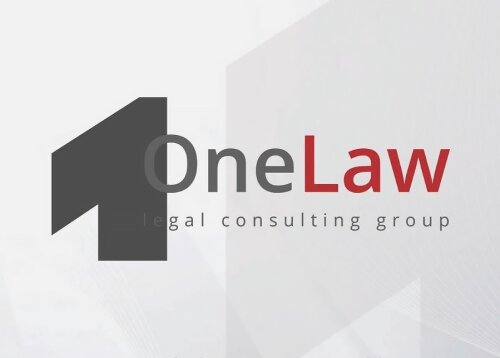Best Housing, Construction & Development Lawyers in Yekaterinburg
Share your needs with us, get contacted by law firms.
Free. Takes 2 min.
Free Guide to Hiring a Real Estate Lawyer
List of the best lawyers in Yekaterinburg, Russia

About Housing, Construction & Development Law in Yekaterinburg, Russia
Housing, Construction & Development laws in Yekaterinburg, similar to the rest of Russia, are a complex body of regulations that govern real estate transactions, construction processes, zoning, land use, and the protection of rights for homeowners, renters, and developers. These laws are designed to ensure safe building practices, fair housing policies, and sustainable urban development. Due to Yekaterinburg's status as a major industrial and cultural center, these laws are particularly relevant to accommodate the city's rapid growth and development.
Why You May Need a Lawyer
Legal advice is often necessary in the field of Housing, Construction & Development for a variety of reasons. Common situations include negotiating contracts for the purchase or sale of property, resolving disputes with contractors or between neighbors over property rights, ensuring compliance with zoning laws, handling construction permit applications, dealing with tenant-landlord disputes, and managing the legal aspects of property development projects. Lawyers can provide valuable assistance by ensuring that your interests are protected and that you are compliant with all relevant regulations.
Local Laws Overview
Yekaterinburg's local housing and construction laws are aligned with Russian federal legislation but may have specific provisions applicable only within the city limits. Key aspects include the "Urban Development Code of the Russian Federation," which covers planning permission and zoning laws, and the "Housing Code of the Russian Federation," which lays out rights and responsibilities for housing and communal services. Additionally, safety regulations for construction, historical preservation laws, and environmental standards play significant roles in local development projects. It is critical for any real estate transaction or development project to adhere to these laws to avoid legal complications.
Frequently Asked Questions
How do I obtain a construction permit in Yekaterinburg?
Construction permits are obtained from the local administration by submitting the required documentation, which usually includes a project declaration, site plan, architectural drawings, and proof of land ownership or lease. The exact requirements can vary based on the project's specifications.
What are my rights as a tenant in Yekaterinburg?
Tenants in Yekaterinburg have rights protected under the Housing Code, including the right to a habitable living environment, protection against unfair eviction, and the right to privacy. Disputes with landlords are subject to the Russian legal system.
What should I do if I encounter a construction defect in my new property?
If you discover a construction defect, you should immediately contact the developer or builder responsible for the property. In many cases, defects are covered by a warranty. If the issue is not resolved, legal action may be necessary.
Can I change the designated use of a property in Yekaterinburg?
Changing the designated use of a property typically requires approval from the municipal authorities and adherence to zoning rules. It may also involve obtaining specific permits and conducting public hearings, depending on the nature of the change.
How is historical preservation handled in development projects?
Yekaterinburg has regulations in place to protect historical buildings and landmarks. Any development in proximity to such sites must take into consideration preservation laws, including possible limitations on construction methods and designs.
What should be included in a real estate purchase contract?
A real estate purchase contract should include the property details, price, payment schedule, rights and obligations of both parties, conditions for terminating the contract, and any warranties or representations.
Are there specific laws for high-rise construction in Yekaterinburg?
High-rise construction is subject to additional safety and engineering standards. These may involve additional permits, stricter building codes, and more rigorous inspections.
What is the role of the municipal administration in development projects?
The municipal administration oversees urban planning, issues construction permits, enforces zoning laws, and ensures that development projects comply with local regulations and standards.
How can I resolve a boundary dispute with my neighbor?
Boundary disputes should first be attempted to be resolved through direct negotiation. If unsuccessful, mediation or arbitration can be pursued before resorting to filing a legal claim with the courts.
Can a foreigner buy property in Yekaterinburg?
Foreigners are generally allowed to purchase property in Russia, including Yekaterinburg, with some restrictions on border areas and agricultural land. It’s advisable for foreign buyers to seek legal counsel to navigate the process.
Additional Resources
For individuals seeking legal advice on Housing, Construction & Development in Yekaterinburg, several resources are available. The Russian Ministry of Construction, Housing and Utilities (Minstroy of Russia) provides regulatory information. Local administrative bodies such as the Yekaterinburg City Administration can also be of assistance for local zoning and permits. Legal aid organizations and practitioner directories can help in finding a suitable lawyer with expertise in this field.
Next Steps
If you need legal assistance in Housing, Construction & Development, the first step is to consult with a lawyer specializing in these areas of law. Gather all relevant documents, such as contracts, permits, property deeds, and any correspondence related to your issue. It’s also sensible to keep track of timelines and deadlines for any legal claims or applications you may need to submit. Your lawyer will then guide you through the legal process, helping to protect your rights and interests at each stage of your housing or development project.
Lawzana helps you find the best lawyers and law firms in Yekaterinburg through a curated and pre-screened list of qualified legal professionals. Our platform offers rankings and detailed profiles of attorneys and law firms, allowing you to compare based on practice areas, including Housing, Construction & Development, experience, and client feedback.
Each profile includes a description of the firm's areas of practice, client reviews, team members and partners, year of establishment, spoken languages, office locations, contact information, social media presence, and any published articles or resources. Most firms on our platform speak English and are experienced in both local and international legal matters.
Get a quote from top-rated law firms in Yekaterinburg, Russia — quickly, securely, and without unnecessary hassle.
Disclaimer:
The information provided on this page is for general informational purposes only and does not constitute legal advice. While we strive to ensure the accuracy and relevance of the content, legal information may change over time, and interpretations of the law can vary. You should always consult with a qualified legal professional for advice specific to your situation.
We disclaim all liability for actions taken or not taken based on the content of this page. If you believe any information is incorrect or outdated, please contact us, and we will review and update it where appropriate.












